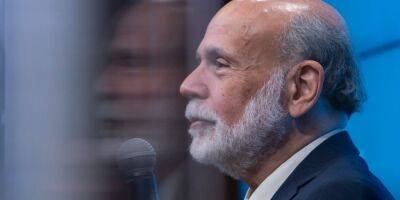Former Fed chair Ben Bernanke wins Nobel economics prize 2022
The former chair of the US Federal Reserve Ben Bernanke has been awarded this year’s Nobel prize in economics alongside two other leading economists for their work on financial crises.
The former head of the world’s most powerful central bank, who was at the helm during the 2008 financial crisis and helped oversee the global response, shared the prize with the economists Douglas Diamond and Philip Dybvig.
The Nobel foundation said the three had “significantly improved our understanding of the role of banks in the economy, particularly during financial crises”, and that their work had shown why avoiding bank collapses was vital.
The award, which comes with a 10m krona (£800,000) cash prize and a gold medal, caps a week of Nobel prizes. Established in the 1960s several decades after the original Nobel prizes, it is technically known as the Sveriges Riksbank prize in economic sciences in memory of Alfred Nobel.
Bernanke, 68, who was chair of the Fed between 2006 and 2014, led the US central bank’s response to the implosion of the financial system and the subsequent deep global economic crisis.
He oversaw the Fed slashing interest rates close to zero and pioneered the use of quantitative easing in an attempt to prevent the last recession from turning into a repeat of the 1930s Great Depression.
He has faced criticism for his failure to spot the crash ahead of time, as well as for the consequences of quantitative easing, after the Fed’s policy of buying US government debt drove up asset prices with damaging effects for inequality.
Although the Nobel prize is usually bestowed on academics rather than policymakers, Bernanke was known before his time at the Fed for his research on the Great Depression. The foundation said it had
Read more on theguardian.com



 theguardian.com
theguardian.com



















